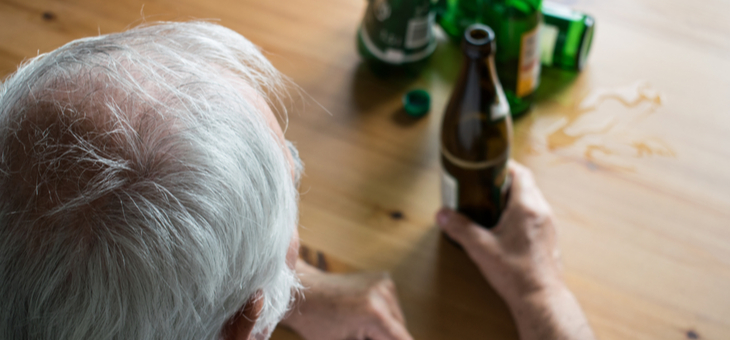Older Australians are much more likely to drink excessively than the general population, new research reveals.
The federal government’s Australian Institute of Health and Welfare (AIHW) report, Alcohol, tobacco and other drugs in Australia, provides some sobering statistics about the rates of problem drinking among older Australians.
Australia’s love of a drink or two is legendary, but the numbers in the report show the darker side of this lifestyle. It says that alcohol is the most commonly abused drug in Australia, caused 1317 deaths in 2019 and makes up around one-third of all substance abuse treatments, with 469,000 people attending an alcohol-related program in the past four years.
People aged 70 and over are the most likely of all ages to drink daily (12.6 per cent of the population), followed by people in their 60s (9.6 per cent) and 50s (7.3 per cent) with more males than females represented in all age groups.
Read: Could alcohol be banned at airports
The data also shows that the tendency to drink to excess may begin in the late 40s before ramping up once people reach their 50s.
“Males in their 50s were the most likely age cohort to drink at levels exceeding lifetime risk guidelines. This is consistent with data from the National Health Survey, where males aged 45-54 and 55-64 were the most likely to exceed lifetime risk guidelines,” the report states.
“Both females (12.2 per cent) and males (30 per cent) in their 50s were more likely to drink at levels that exceeded the lifetime risk guidelines than the general population (9.4 per cent of females and 24 per cent of males aged 14 and over).”
The AIHW defines ‘lifetime risk’ associated with alcohol as being: “The accumulated risk from drinking either on many drinking occasions, or regularly (for example, daily) over a lifetime. The lifetime risk of harm from alcohol-related disease or injury increases with the amount consumed.”
Read: Signs of a damaged liver
The Alcohol and Drug Foundation says the problem is significant but underreported, and greater research in the area is needed.
“Substantial work is required to improve our understanding of older people’s use of alcohol – including the role of cultural differences. We need to understand the social, economic, physical and mental health harms associated with older people drinking,” the foundation says.
While alcohol is the most abused substance among Australian over 50, it’s not the only one. The AIHW report also showed that illicit drug use in on the rise in the older age group.
“Between 2001 and 2019, recent use of any illicit drug has nearly doubled among people in their 50s (from 6.7 per cent to 13.1 per cent), with similar increases among both males (from 8.1 per cent to 16.0 per cent) and females (5.2 per cent and 10.3 per cent),” the report states.
Read: Being overweight can worsen the liver damage caused by alcohol
The most likely illicit substance used by over-50s is cannabis.
“Recent use of cannabis has been increasing since 2001 among people in their 50s and those aged 60 and over, reaching its highest level in 18 years in 2019,” the AIHW says.
“Between 2016 and 2019, there were significant increases in the use of cannabis among people aged 50-59 (from 7.2 per cent to 9.2 per cent) and 60 and over (from 1.9 per cent to 2.9 per cent).”
But rather than looking to turn on, tune in and drop out, older Australians are more likely to be using cannabis for purely medicinal purposes.
“Data from the NDSHS [National Drug Strategy Household Survey] suggest that older people are also more likely to use cannabis for medical purposes than people in younger age groups. In 2019, 43 per cent of people who had recently used cannabis for medical purposes only were aged 50 and over, while 16 per cent of people who used cannabis for non-medical reasons were aged 50 and over.”
Health officials are pleading with Australians of all ages to seek help if they are struggling with addiction of any kind.
“A range of drug and alcohol treatment services, such as counselling, rehabilitation, information and education programs and support and case management programs, are available to support people regarding their use of alcohol or drugs,” says AIHW spokesperson Dr Gabrielle Phillips.
Do you or anyone you know struggle with alcohol? Let us know in the comments section below.
If you enjoy our content, don’t keep it to yourself. Share our free eNews with your friends and encourage them to sign up.

